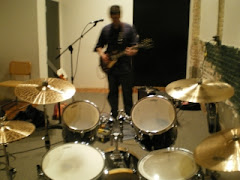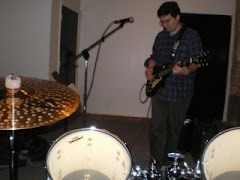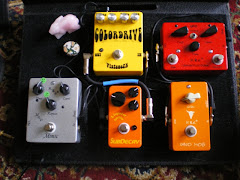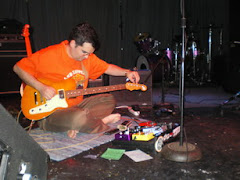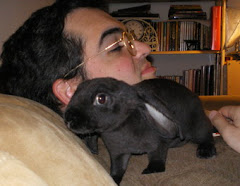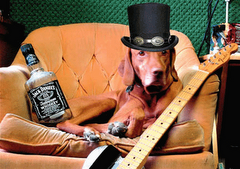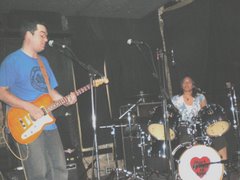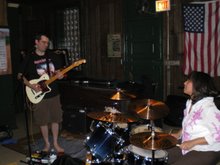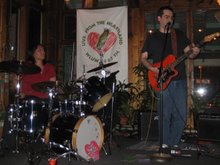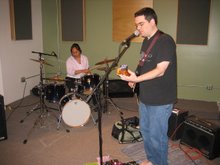
Up until this April we used to rehearse at another place, not the
I think of Racer now because last night at rehearsal a dried chicken stick fell out of the front pocket of my cymbal bag. Racer and I had a game. Twice a week, when we came to rehearsal and if I saw his car was there (actually, his owner’s car, but in my mind, Racer’s car), I would troop up the four flights of stairs with my cymbal bag, snare, and drum pedal and at the top of the stairs, at the end of the corridor I would stage-whisper his name.
“Ra-cer.”
A bray. A hollow bark from the office, and then the sound of dog toenails on the linoleum floor.
“Racer!” I would shout. Before I would hand him a treat, I would ask him to sit, as if I thought he should “work” a little for it. Racer would ease back on his haunches, tongue wagging, and as soon as he saw my hand lift, he would be up on four feet, chomping at my hand. I’ll work, he seemed to say, but not that hard. He would then follow us down the corridor. While we were setting up he would sniff inside Brian's pedal case looking for more chicken sticks. He lingered around until his owner would shout his name and call him back into his office.
Racer was the best part of rehearsal and many nights it was the only real reason I went. In those first few months of playing drums and learning to rehearse, I wasn’t always having fun and just anticipating the tedium and the disagreements (usually resolved) made me not want to go. But then I would hear that loud hunting bray inside my head. Racer. Okay, I’ll go.
It is almost impossible to describe my disappointment if I did put my coat on and drove with Brian to the rehearsal space only to discover Racer’s white 1970s sedan absent from its spot.
“Oh, Racer’s not here.” I would say and pout a pout that could compete with the best pout of an average four year-old.
“Sorry, honey.” Brian would say.
Our climb up the four flights would be punctuated with my disappointed sighs.
First floor: “How come Racer’s not here?” I would ask.
“He can’t work every night.” Brian would say.
Second floor: “Maybe he is here but he came in a different car.”
“No,” Brian would say. “He drives the white car.”
Third floor: “Do you think he’ll come later?”
“He might.”
Fourth floor: “I want to go home.”
“We’re here now. We might as well practice.”
I would move glumly into the practice room and set-up listlessly. Eventually we would begin, practice the songs, and I would learn new things or hear new things. And we would discuss the songs and compliment each other on the progress.
Then, sometimes, at the very end of the night, I would get lucky. I would be packing the cymbals into their case and hear the familiar scrape of dog toenails on vinyl floor. I would drop everything, grab a chicken stick from the front pocket of my cymbal case and run into the hallway.
“RACER!” I would shout.
From the end of the hallway, in mid-step, Racer would leap forward, his caramel-colored ears flapping.
Chicken strips!!
Yes, I knew. Despite how much I loved Racer, I knew that for Racer I was just a chicken stick delivery system, but that didn’t make me love him less.
Our games continued until this past April when the rehearsal space had a fire. A fire I’ll describe to you some other day. For right now, I want to remember Racer and his caramel-colored ears and his hunting bark and how he motivated me to keep playing even when I didn’t want to play.
So, thanks Racer, wherever you are.




